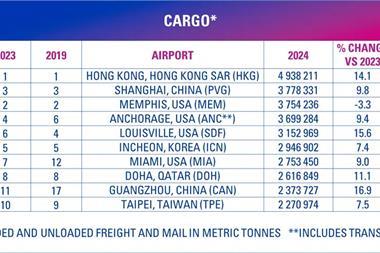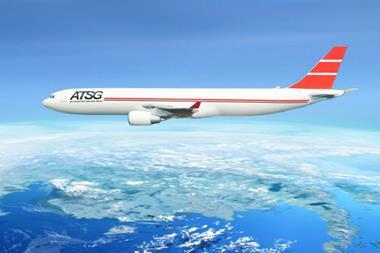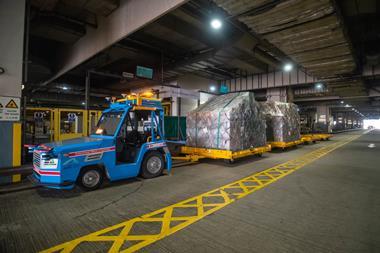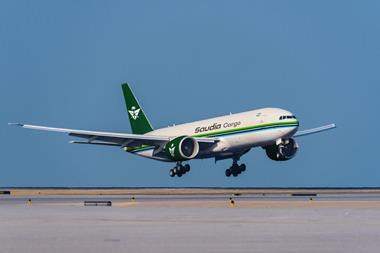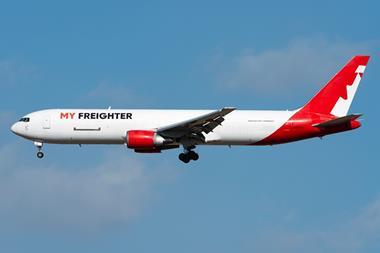Cathay Pacific is expecting a weak start to next year, but is more optimistic for 2020 as a whole.
The Hong Kong hubbed airline said that its cargo performance continues to come under pressure and this is expected to continue next year.
Last month, Cathay Pacific and Dragon Air carried 177,964 tonnes of cargo, a drop of 3.9% compared with a year earlier, while over the first 11 months tonnage is down by 6.4%.
The ongoing political protests and a weak trade environment have been taking their toll on performance.
Cathay Pacific Group's chief customer and commercial officer, Ronald Lam, said: "Both load factor and yield further improved against the previous month in November, which is traditionally a peak month of the year. Exports from mainland China, Hong Kong and Taiwan remained robust.
"As demand from traditional retail and new product releases tailed off towards the latter half of the month, strong e-commerce traffic surged around the Singles’ Day shopping holiday in mainland China as well as Black Friday, to which we successfully catered with additional charter requests to Southeast Asia.
“While our cargo performance this year remains significantly below the record levels seen in 2018, we are cautiously optimistic about 2020 despite anticipating a weak first half."
Last week the airline announced it would offer a discount to exporters to help maintain Hong Kong's competitiveness.
Exporters using the group’s four airlines – Cathay Pacific, Cathay Dragon, AHK Air Hong Kong and HK Express – will enjoy a saving HK$0.3 per kg for both general cargo and special cargo. The reduction ranges from 18% to more than 20% compared with the current charge levels.
The move has been welcomed by forwarders, but they would like the discounts to be extended for a longer period of time.
The airline will reduce capacity next year in response to the weak outlook for both passengers and cargo.
Lam said: "As a business we continue to closely monitor market sentiment and global travel trends, remaining agile in our operations and ensuring our passenger and cargo capacity is best aligned with demand.
"In light of the immediate commercial challenges we are facing, we have reluctantly made the decision to reduce our seat capacity in 2020 by 1.4% year-on-year as opposed to our original plan of 3.1% growth, meaning that for the first time in a long while our airlines will reduce in size."
Last week, IATA said it expects the cargo market to increase by around 2% year on year in 2020.










